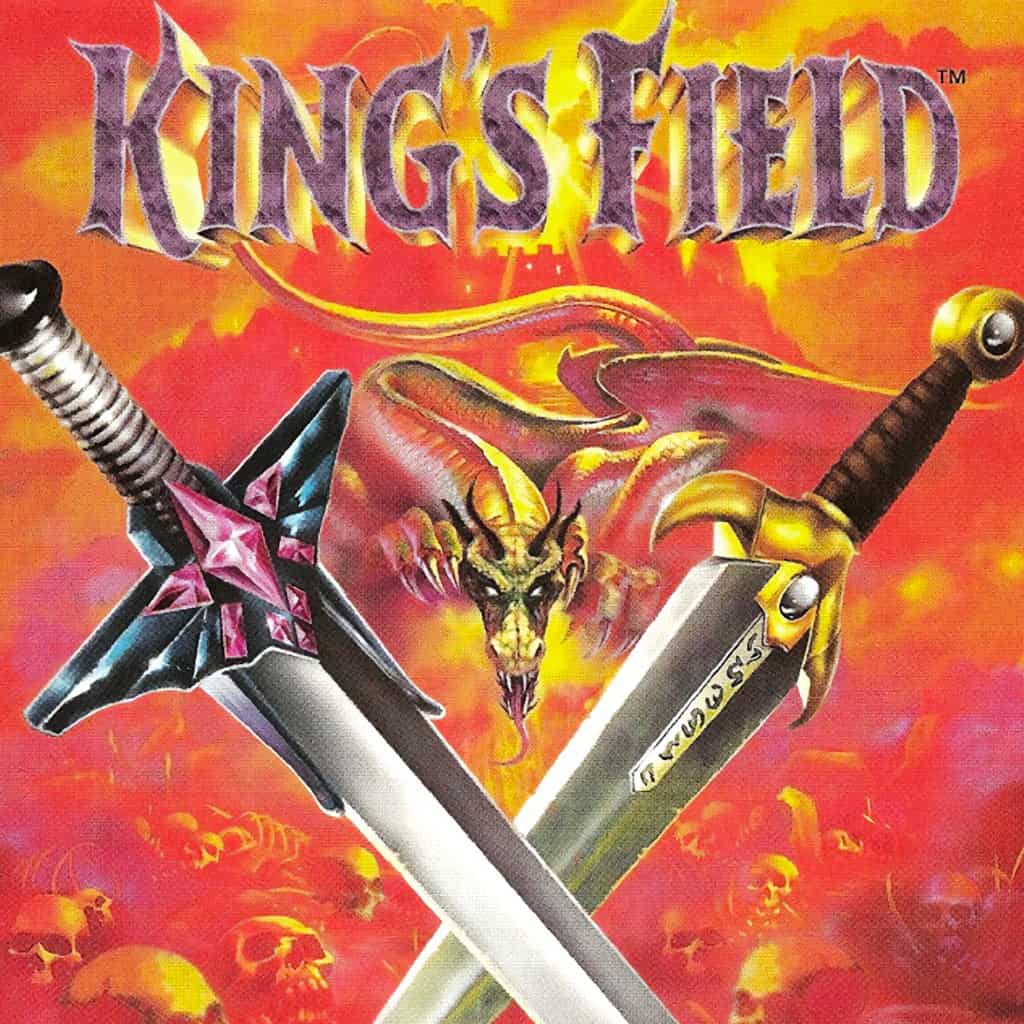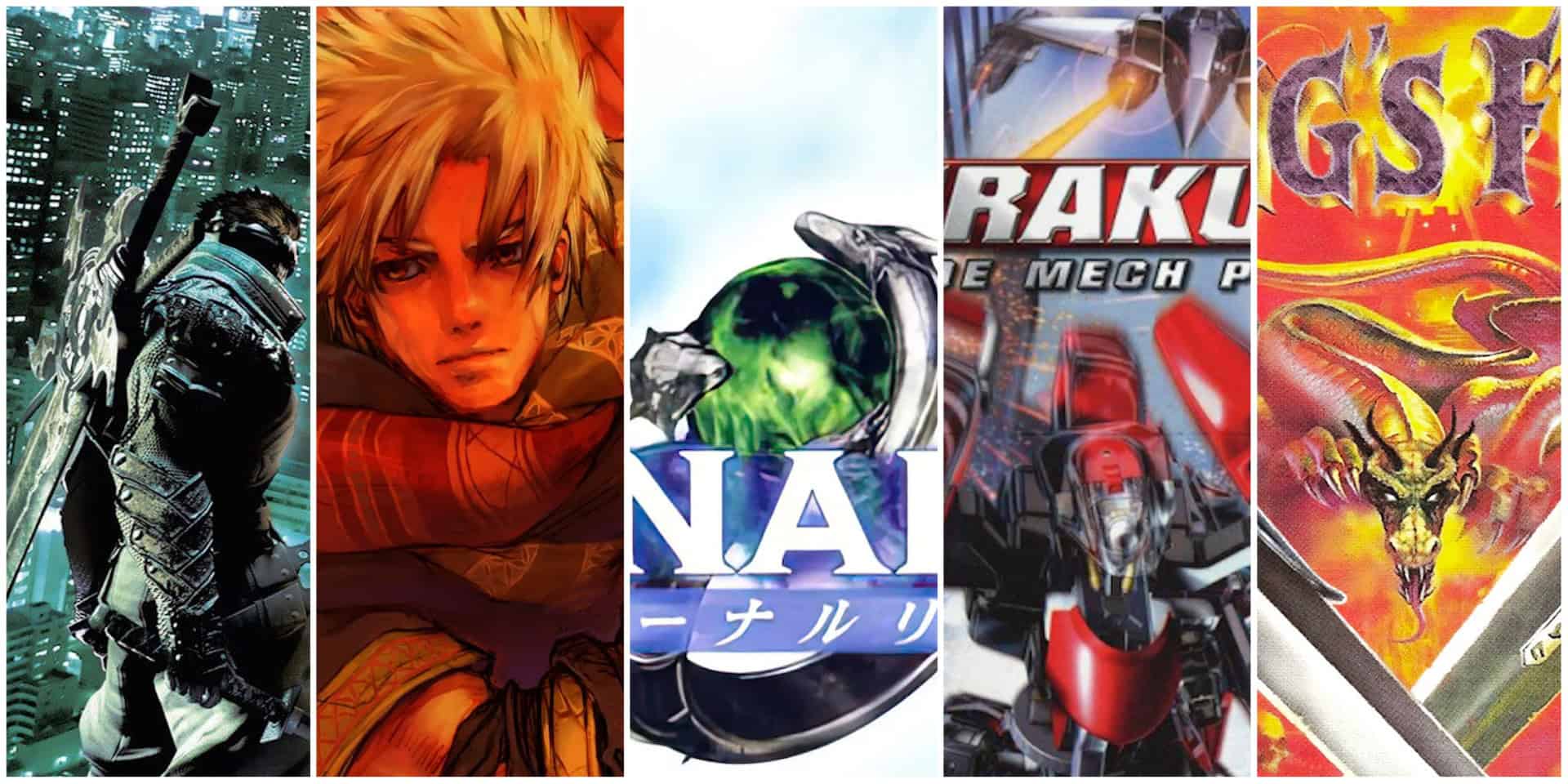Murakumo: Renegade Mech Pursuit
Kings’s Field (1-3)


When most gamers think of FromSoftware, iconic titles like Dark Souls, Armored Core, Bloodborne, and Elden Ring often come to mind, but the studio’s roots reach far deeper than its modern successes. Long before it became synonymous with challenging action RPGs, FromSoftware experimented with a diverse range of genres and styles. Many of its lesser-known games, from mecha simulators to surreal adventures, showcase a different side of the studio’s creativity and ambition.
This got me thinking about the underrated gems—games that have been overlooked or simply forgotten—that represent FromSoftware’s earlier work. These titles may not be as widely recognized, but each holds a unique charm, offering fans a glimpse into the studio’s evolution before the Soulsborne era took center stage. In this piece, I’ll highlight just a few of these hidden gems that flew under the radar, but were important milestones in the history of the renowned developer we’ve all come to love.

With methodical combat, sparse checkpoints, and a storytelling style that required players to piece together the lore, King’s Field set the stage for the gameplay philosophy and immersive world-building that would make Dark Souls a global phenomenon. Though often overshadowed by FromSoftware’s more recent works, the King’s Field games are a testament to the studio’s early exploration of challenge, mystery, and dark fantasy, themes that Soulslike fans would come to recognize.
Kings Field is also a series that I’d love to see FromSoft revisit. Given everything that has been learned and accomplished, a remaster or rebooting it, with the same great Soulslike combat and mechanics we’ve come to enjoy.
Ninja Blade might not be the first game you think of when it comes to FromSoftware. Released in 2009 for the Xbox 360, this high-energy action title gave FromSoft a chance to step outside its usual territory of methodical, atmospheric gameplay and dive headfirst into the cinematic, fast-paced world of hack-and-slash. Playing as a modern-day ninja attempting to defend Tokyo from a monstrous outbreak, armed with an impressive arsenal of weapons and ninja techniques, the game’s over-the-top action, with a heavy reliance on quick-time events, was reminiscent of Devil May Cry or Ninja Gaiden. This posed a problem as FromSoft wasn’t known for those types of games.
Despite its likeness to that of Capcom’s or Tecmo/Team Ninja’s titles that did so well, especially in the West, Ninja Blade often flew under the radar. It didn’t help that Ninja Blade arrived in a crowded field, competing with other prominent action titles at the time, and its quick-time event-heavy design wasn’t to everyone’s taste. Despite that, looking at Ninja Blade represented an important moment in FromSoftware’s evolution—a rare opportunity for the studio to explore a different kind of action. While it didn’t leave the same legacy as Demon’s Souls or Dark Souls and is usually mentioned as one of FromSoft’s worst games, it’s an interesting look at the experimental side of the developer and is something that has helped the company develop titles such as Sekiro or Elden Ring.
If you want to give it a try now, the best way is to purchase a copy on Steam.
Eternal Ring was a launch title for the PlayStation 2, and is one of FromSoftware’s early forays into first-person RPGs, following in the footsteps of their King’s Field series. Set on a mysterious island filled with dark dungeons, mystical creatures, and powerful rings, the game puts players into the role of sorcerer-knight tasked with uncovering the island’s secrets. The game stands out for its unique ring-crafting system, allowing players to combine different magical attributes into rings that grant various powers—an early precursor to the customization and strategic depth seen in later FromSoft titles. While it may not have the massive world or lore complexity of Elden Ring, Eternal Ring still planted seeds that would grow into the immersive, challenging experiences we currently associate with the studio.
Yet, despite its significance, Eternal Ring often flies under the radar due to its slower, exploration-heavy gameplay that didn’t appeal to most audiences. Sounds familiar, doesn’t it? However, looking back, it’s clear that Eternal Ring helped establish FromSoftware’s approach to atmospheric world-building and player-driven customization. It may not have the same fanfare as its spiritual successor, Elden Ring, but it’s an intriguing chapter in FromSoft’s evolution, highlighting the studio’s longstanding fascination with magical worlds, cryptic lore, and challenging exploration. It’s also ironic that Eternal Ring sounds very close to Elden Ring, isn’t it?
Evergrace is yet another of FromSoftware’s early experiments that didn’t get the recognition it deserved but is an essential piece of the studio’s journey into action RPGs. Released in 2000 as a launch title for the PlayStation 2, Evergrace stood out at the time for its blend of character customization, atmospheric exploration, and an immersive soundtrack—all elements that FromSoftware would later refine in titles like Demon’s Souls and Dark Souls. The game featured a distinctive equipment system that didn’t just boost stats but visibly changed the character’s appearance, setting the stage for FromSoftware’s eventual emphasis on customization and player-driven storytelling.
The game wasn’t all that popular due to its clunky combat, slower pacing, and experimental mechanics, which caused the game to be overlooked in a sea of more interesting games during the PlayStation 2 era. Yet it demonstrated an early commitment to atmospheric, nuanced world design and planted seeds that would ultimately influence the Soulslike genre that FromSoftware would help define. While not for everyone, Evergrace stands as an intriguing chapter in FromSoftware’s development.
This is another gem that I would like to see Fromsoftware take a stab at again and seeing FromSoft apply everything it learned would be a surprise for those who missed out on it the first time.
These titles are just a few of the overlooked and underrated titles that FromSoftware has crafted on its journey to becoming the go-to studio for moody, atmospheric games with its signature combat—elements the world has come to love. Every game on this list has served as a basis for the games that we’ve come to love.
It’s particularly interesting to note, considering that Demon’s Souls, a title that was “supposed to fail,” ended up being perhaps FromSoftware’s best, as the game opened the eyes of every gamer who dabbled in the realm of action RPGs, and the rest, as they say, is history.
Here are a few of our reviews of Fromsoftware titles:
Keith has been a fan of geek culture and video games ever since his father gifted him his first gaming console many decades ago and has used this love of for the genres to start The Outerhaven. Keith keeps follows on the ongoings of videogames, anime, comics and technology, and while he has been writing about these topics for the past 14 years, he has been a gamer and tech guy for 30 years.

